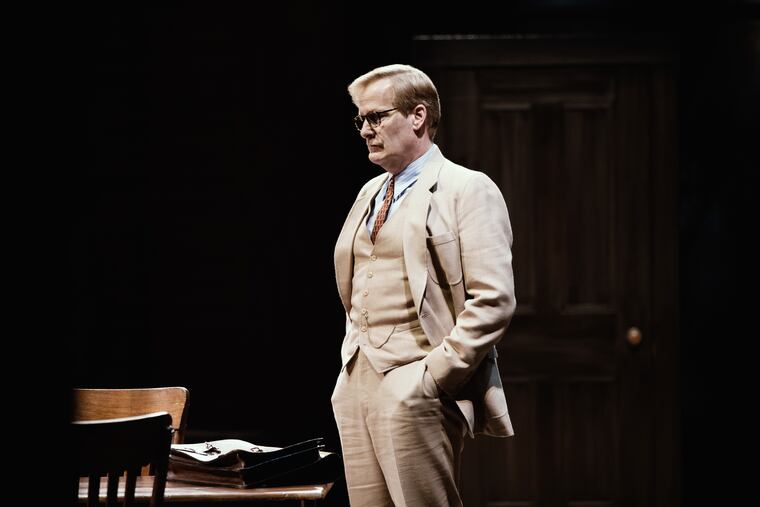Broadway review: ‘To Kill a Mockingbird' at Shubert Theatre is a great American play
From adaptor Aaron Sorkin to leading man Jeff Daniels as Atticus Finch, on down through a fine cast, this lovely production is more than worthy of the beloved novel and film.

To Kill A Mockingbird is a great American story, and this production at the Shubert Theater in Manhattan is a great work of American theater. As nearly everyone knows — from the 1960 novel as well as the 1962 movie — it’s about the Finch family in rural Alabama in the summer of 1934 and the evil of racism. A single father (Jeff Daniels) — it’s worth noting, if we’re collecting examples of contemporary relevance, that all the children in all the families in this play have only one parent — is raising his son, Jem (Will Pullen), his daughter, Scout (Celia Keenan-Bolger), and a visiting neighbor boy, Dill (Gideon Glick). The cast is powerfully, convincingly, alive, both in Scout’s memory as she narrates and for us as these actors fully inhabit their roles.
Atticus Finch is a “small town lawyer who gets paid in vegetables” and is faced with the most challenging and dangerous case of his career: A white girl (Erin Wilhelmi) has accused a black man (Gbenga Akinnagbe) of rape. Her father (Frederick Weller) is a vicious white supremacist. The cast — including smaller roles like that of the Judge (the subtly hilarious Dakin Matthews) — is uniformly fine. Under Bartlett Sher’s vigorous, uncompromising direction, we are allowed to “crawl around in another man’s skin.”
When Paula Vogel, in the cast list for How I Learned to Drive, describes her character Uncle Peck as requiring an actor “one might cast in the role of Atticus,” she assumed, rightly, that anyone, everyone, knew what that implied, so iconic is Atticus as the model of courtesy, stalwart morality, and decency. To understand the brilliance of Aaron Sorkin’s script, reread the last 20 pages or so of the novel and realize what adaptation for the stage really means.
Daniels is splendid. He has added a trace of weakness and a whiff of shame to the lovable, admirable character. He is human, after all, and this emerges in tiny, nearly missable moments. When Jem asks his father which side he would have fought on if the war were now, Atticus replies, “I’d be hiding under the bed. [pause] It’s a joke.” Jem replies, grimly, “You sure?”
Sorkin’s script is deft as well as fine. When Jem protests that the Civil War was 70 years ago, Atticus replies, “It was yesterday. It’s always yesterday.” There is no way we don’t instinctively add, silently, It’s today, too.
A guitarist (Allen Tedder) sits on one side of the stage, and an organist (music director Kimberly Grigsby) sits on the other, gently, unobtrusively creating atmosphere (music by by Adam Guettel). The set, designed by Miriam Buether, is also gentle and unobtrusive — a porch, a courtroom, a bedroom — all descend from above, without the distraction of stagehands.
The play begins with “All rise,” announcing this as a courtroom drama: We are put on notice to pay close attention, and, further, to “rise to the level of a just God.” The tradition of rising in a courtroom implies respect for the rule of law and for justice. When we hear “All rise” at the play’s end, it seems to invite us to rise to our feet and applaud as though our hearts would break.